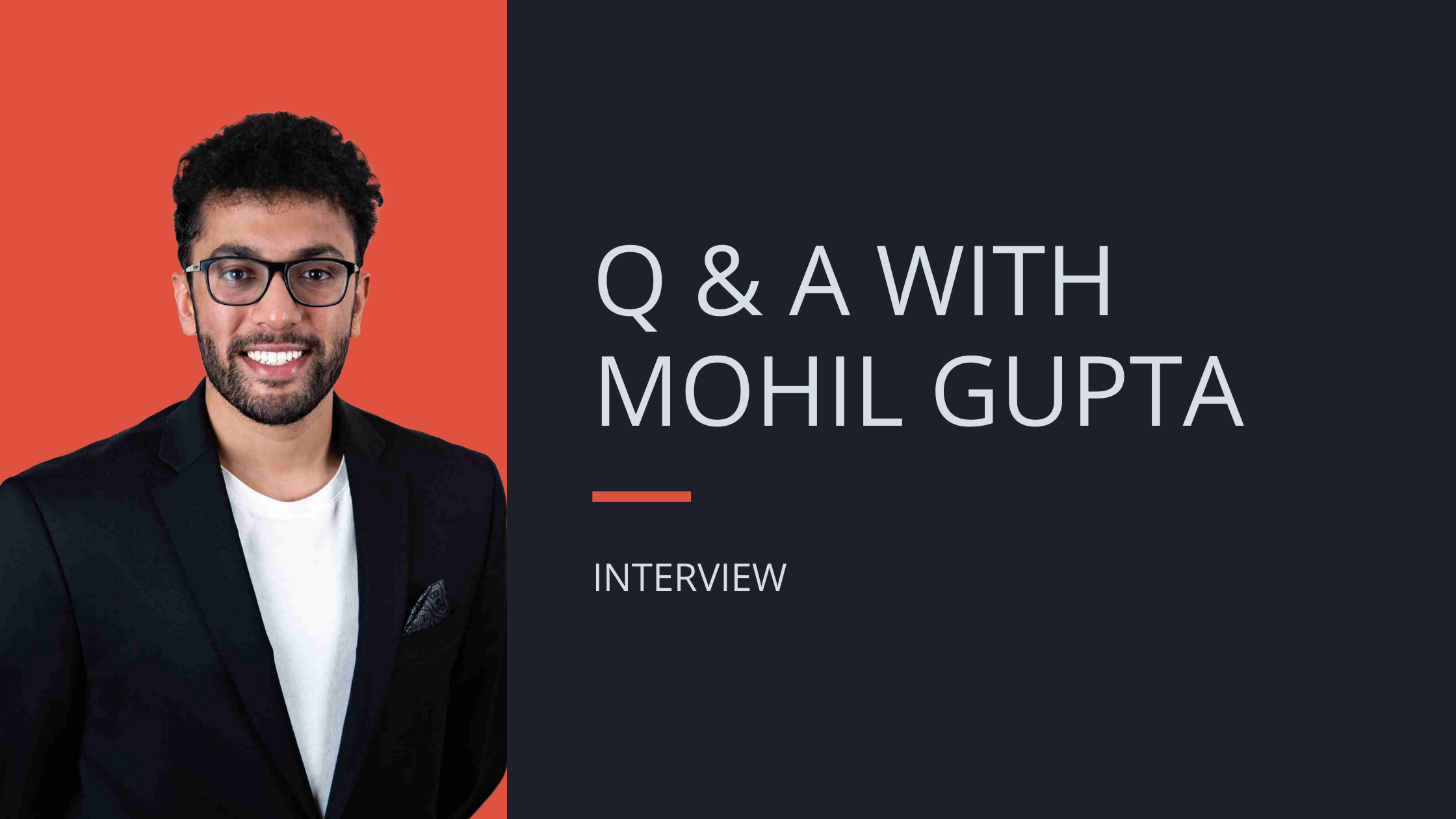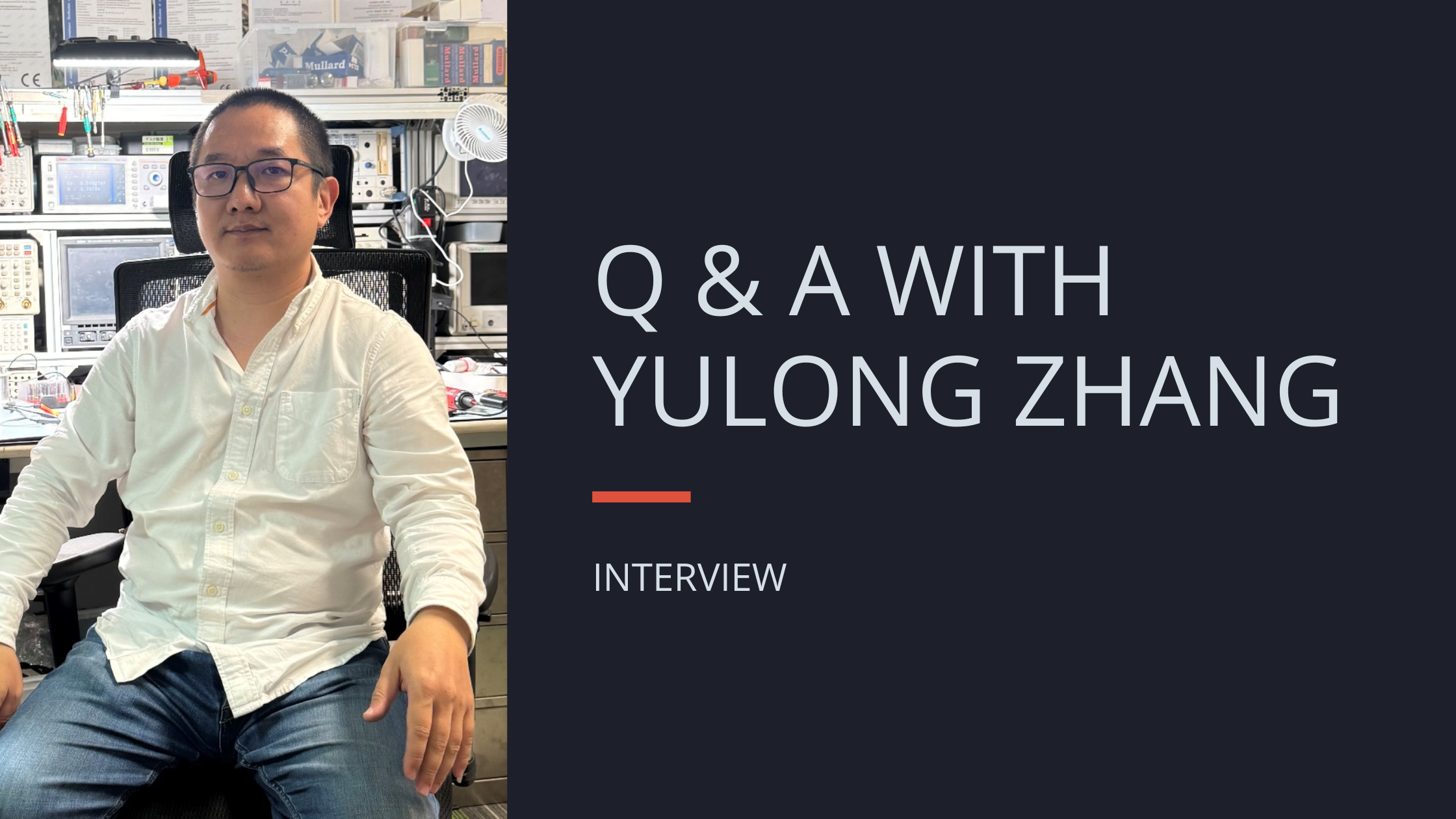
Q & A with Mohil Gupta of OcuClips
Tom at Apos here. Most people get product ideas in the shower or in the midst of a long drive. Mohil Gupta got his during a boss fight. As a lifelong gamer and glasses-wearer, he knew the pain of headset discomfort all too well—so he did something most people would never dream of doing: he solved the problem himself.
In this interview, we talk with Mohil, founder of OcuClips, about what it takes to turn an annoying personal problem into a polished product. He shares the winding path from rough sketches to production-ready parts, how an iOS wizard game led to other ideas, and why every designer should respect the exactitude of the millimeter.
Tom: Let’s start way, way back. What were you like growing up? Were you always someone who likes to tinker, invent, or solve problems?
Mohil: I was a big gamer and a bit of a weirdo when it came to inventing things—I made dozens of apps and actually started thinking about OcuClips in middle school. I always wanted to be either a music producer/director or an entrepreneur. I’ve loved being creative and inventing things from a young age.
Tom: Do you remember your first invention—or the first time you tried to build something to make life easier?
Mohil: Yep! It was an iOS game called Bending Temple, where three wizards cast spells at you and you had to defend yourself from their attacks. It got 3,000 downloads in the first two weeks.
Tom: Whoa this sounds really cool! Did you continue designing games or was Bending Temple the beginning and end of your game design career?
Mohil: Yeah, that was actually both the beginning and end of my game design era. I joined the club and tried to pitch it, but it was so hard getting everyone on board. We used up a bunch of money on graphics, and the whole space is super fragmented, so I kind of stepped away from it. These days, I’m honestly into designing anything—from digital to physical products, even Chrome extensions. Here’s one I made just for fun: https://briefbook.org. It copies and pastes your availability in plain text format, which makes it way faster than using Calendly or other scheduling tools. I just love these passion projects.
Tom: That’s really inspiring. Speaking of which, who are some inventors, designers, or entrepreneurs that inspire you?
Mohil: Steve Jobs for his design acumen, and Elon Musk for his fearlessness and constant innovation.
Tom: What drew you into the world of gaming, and how has it shaped your perspective as a product designer?
Mohil: I always loved my PlayStation—COD, Uncharted, Mark of Kri, etc. I actually experienced the OcuClips problem myself as a kid. Most of the products I’ve made came from problems I personally faced, which makes me really empathetic to users and deeply invested in customer needs.
Tom: Has your experience as a glasses wearer/gamer always been frustrating, or was there a specific moment that pushed you to act?
Mohil: It was definitely frustrating for a long time. As a kid, I’d even ask uncles who ran businesses for advice, but they weren’t much help. Later, during my master’s program, I finally had the technical skills and campus resources to start designing OcuClips. I was just fed up with the pain and wanted a real solution.
Tom: What were some of the challenges you faced during the development of OcuClips, and how did you overcome them?
Mohil: So many. I needed to make something non-slip, adjustable to all glasses, made from comfortable materials—it took over 100 iterations. I tried magnets, slip-ons, adhesives… so many versions that still left problems. The entire process took 2.5 years. Finding a manufacturer abroad, dealing with MOQs, and securing the utility patent also took years.
Tom: I’m blown away by the tenacity. Have you always been so driven and single-minded? I feel like I would have given up around iteration four.
Mohil: Thanks! I figured if I gave up, all the effort I’d already put in would’ve been for nothing. I’ve always been kind of crazy about finishing what I start. Honestly, I wasn’t even sure I’d ever reach the end goal—I just knew I was getting closer and closer, and people really loved the idea and the product, which kept me going.
Tom: Well, you’re a much more dedicated person than I am. What’s one unexpected lesson you’ve learned since launching OcuClips that you wish you knew at the beginning?
Mohil: Design with manufacturing constraints in mind from the start—and build a presale list early.
Tom: What has been the most rewarding aspect of developing OcuClips, and how has it impacted your perspective on product design?
Mohil: The most rewarding part is knowing I created something that genuinely solves a problem for a lot of people. It also taught me how exact of a science product design is—even a single millimeter can make a difference. Customers have very real, very specific needs.
Tom: A millimeter, really? I feel like there's a story here.
Mohil: Yep! There’s a big story behind it — the iterations on OcuClips were extensive.
I had to design it so that it could fit nearly all glasses frame dimensions. That meant carefully deciding exactly where to place the Velcro to seal the remaining parts and press the glasses frame snugly against the anti-slip material. Every millimeter mattered — the height and width variations between different frames were tiny, but crucial.
I had to ensure that OcuClips never pushed the glasses far enough to interfere with the headphones. At the same time, I needed to position the Velcro and anti-slip material precisely — figuring out where they should start and end within the design. I also had to make sure that, when the glasses closed, there was enough leftover space for everything to stay compact, without being too tall and interfering with the headphones.
To top it off, I hired a chemist to help compare the compressibility of different foam options. We needed something that wouldn’t compress too much, still offered full comfort, and ensured users didn’t feel the pressure of headphones pressing against their glasses. Honestly, I probably tested dozens — if not hundreds — of material combinations, from anti-slip surfaces to different Velcro types.
Tom: Once again: tenacity. I'm in awe of it. But it does beg the question: why didn't you ever just wear contacts?
Mohil: I personally hate contacts lol. They hurt, plus I feel like I’m more of a glasses guy for sure. Also I don’t think it makes any sense for a glasses wearer to make such a significant change in their lifestyle/daily routine due to just experiencing headphone pain with glasses.
Tom: As a glasses wearer myself, that's totally fair. So what’s next for you—personally or professionally? Are there more products brewing in your notebook?
Mohil: Personally, I love to travel. Professionally, I’m always thinking of new product ideas—I genuinely enjoy creating things, and I’m sure I have a bunch more designs still to come.
Tom: Well we can't wait to see them!


